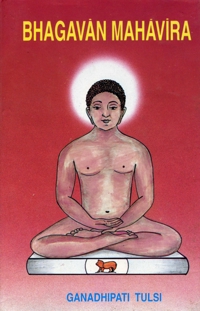 | Chapter 9 | Philosophy And Exhortation |
81.
If one's vision is capable of expelling the darkness, he would not need a lamp. Likewise the soul itself being blissful, there is no need of external object for bliss.
(Pravacanasara, 1/67)
82.
Those who are interested in worldly objects have of necessity misery in them. If there were no misery in them, they would not indulge in those objects.
(Pravacanasara, 1/84)
83.
I condemn what is worthy of condemnation; I censure what is worthy of censure. I atone for all the outer and inner encroachments on the soul.
(Mulacara, 2/55)
84.
May the state of the Arhats, the Siddhas and the Vitaragas be my goal.
(Mulacara, 2/107)
85.
As the fire quickly consumes dry wood, even so an adept whose soul is equipoised and unattached causes the accumulated karma structure to disintegrate.
(Acaranga, 4/3/33)
86.
Those who hanker after pleasure, those who are attached to or seized by passions and are obstinate like a miser, cannot know the nature of samadhi (self-concentration).
(Sutrakrtanga, l/2/58)
87.
A monk engrossed in meditation renounces all evils. Meditation is therefore the best way of regression from all transgressions.
(Niyamasara, 63)
88.
One, who meditates on the soul attains the supreme samadhi.
(Niyamasara, 129)
89.
The monk who is absorbed in meditation achieves victory over attachment and aversion, and the senses. His fear vanishes and his passions are shattered. Finally, he extirpates his indulgence, abhorrence and delusion.
 Acharya Tulsi
Acharya Tulsi

